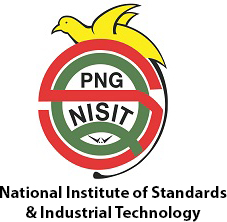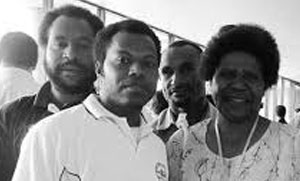




The Institute through the Division provides broad range of advice and consultations on all standards-related issues and matters across all industries, sections, professions etc. The Institute process such service either through its Secretariats through internal discussions or through participation in forums or stakeholder Meetings, Workshops and Seminars etc. The Institute also provides such consultation through attendance and participation in its owned scheduled Meetings, Forums, Seminars, Trainings and Conferences.
The Division through its respective TC Secretariats provide advisory and consultation to all interested parties outside the immediate TC structure and internal administrative and communication mechanism. Respective TC Chairman are also involved together with its members in a pro-active undertaking to effectively share with industry experts and technocrats or professionals in the respective fields with regard to Standards development process including the rationale, application and intended benefits and implications. This is effected through the entire Standards Development process through to publication and awareness.
The Division also provides advisory and consultations in all areas of Standards application in Trade. Discussions cover wide ranging issues on products, processes and services and the applicable standards as per the trade requirements for export or import purposes. The Division can facilitate discussions on cross-cutting issues on Standards and Conformance that impede on market and customer issues and trade in general. Standards relating to Trade Commodities, Products and Services that transects across all economic sectors of PNG in general can also be discussed when requested.

PNG Standards are subjected to constant maintenance and currency to reflect the current accepted practices based on the industrial and technological development. Hence, the division is always taking the onus to be proactive in every way possible to keep abreast with the current trend and developments in Standards Development including the application and implications of the adopting new PNG Standards for adequacy and relevance in the domestic market and business environment. The reason being, Standards are updated as per the regular cycle of three years from the commencement of their establishment and publication date.
In effect, Standards review – is an ongoing process in maintaining the currency, validity and applicability in the current domestic (as at regional and international) market.

The Technical Standards Division is also responsible for the publication of PNG Standards. The Standards can be in both hard copy and electronic form. All published Standards are maintained by the Institute through the Division. The reference copy of these Standards are maintained and shelved at the Standards Information and Sales Center for public display and viewing.
The Division and its TCs do schedule Forums and Workshops from which it issues Official Notice as part of public launching of the newly published PNG Standards. NISIT Official Newsletters and PNGS Catalogue provide another publicity medium for publicity purposes of the established and newly or recently published Standards.
Standards are of two types: Voluntary Standards – Standards which are used on voluntary basis and Mandatory Standards - Standards which are bonded on (Technical) Regulations. The Mandatory Standards are regulated by respective Regulators as per their respective Technical Regulations. However, the Institute is only charged with the responsibility of developing and publishing National standards, which are deemed to be voluntary in nature.

The Technical Standards Division in its efforts in disseminating information on already established and newly published standards also engages in scheduled Road Shows, Publicity Campaigns and Marketing through the print media and Public Seminars in and around the country. Additional Information Booklets and Technical Information Documents are frequently published and distributed. Other related information documents are also made available where and when necessary or required.

One of the key functions of the Technical Standards Division is the formulation of the PNG Standards. PNG Standards are developed, reviewed and maintained through NISIT Technical Committees comprising technical experts, academics an professionals actively involved through the voluntary participation in those (technical) fields of standardization. To date, the formulations of the PNG Standards are facilitated through the TCs under the guidance of their respective Secretariats. The respective Secretariat Desks are maintained by the Technical Standards Executive Officers.
| NISIT Technical Standards Committee | Scope of Standards Development cover the following Areas | Number of PNG Standards Established to Date |
|---|---|---|
| Biological (Agriculture, Food, Medical) Standards Committee (BISC) | Oversees to all Standards in the area of Agriculture, Medical Sciences & Technology, Food Sciences & Technology, Biological Sciences & Technology | 117 |
| Chemical Standards Committee (CHSC) | Oversees to all Standards in the area of Chemicals and Chemical Materials, Technology and Application | 147 |
| Construction & Building Standards Committee (COSC) | Oversees to all Standards in the area of Architecture, Design, Construction and Building Industry | 122 |
| Electrical Standards Committee (ELSC) | Oversees to all Standards in the area of Electrical & Electronics Technology and Application | 186 |
| Mechanical Standards Committee (MESC) | Oversees to all Standards in the area of Mechanical Engineering Application and Testing | 281 |
| Certification Standards Advisory Committee (CSAC) | Oversees to all management systems Standards in the area of Quality, Environment, Safety, Food Safety and other relevant Conformity Assessment Standards & Guides | 10 |
| Testing Laboratory Accreditation Committee (TLAC) | Oversees to all Standards in the area of Laboratory Accreditation and Field of Testing and other relevant Conformity Assessment Standards & Guides | 5 |
| Units Standards Calibration Committee (USCC) | Oversees to all Standards in the area of Metrology and Measurement Technology & Practices | 50 |
| Other (Newly Established) Standards Development Committees (Working Groups) | Draft Tourism Standards Draft Timber Preservation Standards | 1 1 |
The Standard development processes embraces the notion that it must be seen to be ‘industry-driven’ or ‘user-driven’ and therefore must be driven by all stakeholders and users concerned. At present, the Institute facilitates the Standards development processes through two different approaches namely ‘Adoption Process’ and through the ‘In-Country’ stakeholder needs and or requirements.
The Technical Standards Division facilitates the formulation of most PNG Standards through the ‘adoption processes’. In this process, basically all international, regional and foreign national Standards are reviewed for adoption pending all necessary review inputs and comments. The process may enabled adoption ‘in total’ or ‘partial adoption’ of either the foreign National Standard or International Standard. Currently, most PNG Standards are primarily adopted in total from ISO, IEC and Australian Standards including other recognized Foreign Industry recognized Standards (e.g., American Society for Testing and Materials [ASTM]).
In-country developed Standards generally reflect the notion of Standards being developed from within the national context and intention specifically tailored to address and capture ‘in-county’ conditions, needs and requirements. These Standards are developed from within the respective in-country sectors with involvement from all the domestic-based experts and professionals and all stakeholders concern.
Of the two approaches, Standards developed or adopted either from foreign National Standards and International Standards must be consistent to the Government’s Policy and Commitment to International Regional Trade Agreements and Arrangements. This must also be consistent with the current National Policies on Industrialization, Agricultural, Social, and Environmental and Safety needs. Consistency must be demonstrated in all other commitments in bilateral and multiple trade arrangements.
Powered by CloudcodeDisclaimer Terms & Conditions
